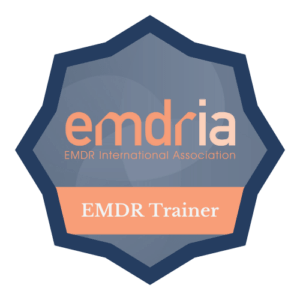Blog
Blog

By Rosemary Burns
•
January 27, 2025
Have you ever noticed that when it rains plants just seemed so refreshed? Like the life-giving water is just what they need. It brings about growth and positive change. The same is true after learning something like EMDR. With EMDR there is sooooo much new information when you first learn it. At times and for a lot of learners it can feel overwhelming. But that's what refresher courses are for-to give you that big deep breath of "ahhhh-I get it now". Refresher courses help you solidify and integrate what you have learned, maybe a long time ago, maybe just a few months ago-so that you can use your skills more proficiently. Meridiem Psychological Services offers a great EMDR refresher course called "Go with That, Now Where do I Go-the Three Prongs of Trauma Resolution". It is offered periodically throughout the year as a live webinar and is in the development stages of being offered as an on-demand home study course. You can find it on our website.

By Rosemary Burns
•
June 21, 2024
Probably like many of you, I am part of many professional groups on Facebook. As I have written previously, Facebook is one of the only Social Media platforms I use. There is one group I am part of that is all about EMDR. Providers of all levels of experience, consultants, consultants-in-training, and trainers make up this group. At times, providers will ask about a case, looking for recommendations. After all, a FB group can reach people world wide-what a great resource! However, at times, I think it can be very overwhelming. Let me give you a generic example: a provider is working with their client and feels stuck in some way. They then ask about it on the FB group and sometimes are inundated with responses like: "You should use IFS and EMDR with this client" or "Sounds like there is a protective part that you need to work with", and many more recommendations for applying some kind of specialty. Now, I am not here to say that those specialties should be ignored. Far from it-they are important. But not in what seems like every case presented and not for clinicians who may be new to EMDR and maybe cannot obtain those trainings yet. Sometimes you need to get back to the basics. Sometimes, the therapist just needs to stay out of the way, trusting the brain to do what it needs. If the Standard Protocol is not working, if the client truly is stuck-reach out for consultation with an EMDRIA approved Consultant or Consultant in Training. Why? Because actual consultation can get more in depth and specific to what you have questions about, than on a FB group. And if a situation truly requires a specialty training, the consultant can recommend it. I will never forget a consultee I worked with in the past. She had started out with a different consultant and told me that this consultant told her that she would need to get trainings in IFS, Dissociation, Somatic Experiencing, etc. This newly trained EMDR provider felt overwhelmed and told me there is no way she could afford to get all of those trainings!. I told her, at the place she was in her EMDR journey, she did not need all of those trainings-stick to building and honing your basic EMDR skills-those trainings can come gradually in the future! She felt so relieved. Get your basics down and get consultation. Rosemary Burns at Meridiem Psychological Services is an EMDRIA approved consultant. If you are interested in consultation, reach out. If you are interested in EMDR Basic Trainings or EMDR Advanced Trainings, go to our professional education section of our website.

By Rosemary Burns
•
June 14, 2024
Social Media may be one of the best ways of getting content out nowadays. As I said before, I'm a Gen Xer. I was alive before any of this existed and watched how technology made advances and innovations before my eyes. The only social media app I have is Facebook and I'd be lying if I said it didn't create a HUGE time suck on some days. But when you are trying to get the word out of upcoming changes to your practice/business, is social media the best way to reach the most people? I have been in private practice for over 13 years. My practice has centered around excellence in client care and really focused solely on treatment. About 11 years ago, I became trained in EMDR and it completely transformed my world. I began with gradually converting my focus to trauma-based treatment and I started marketing myself as specialist in trauma treatment. As I worked my way to becoming certified in EMDR, and then a consultant over the next several years, my journey has led me to essentially wanting to convert my practice into an EMDR training, consultation, and treatment center. I learned how to be an EMDR trainer. I achieved that credential and now am trying to possibly rebrand my business as such-EMDR Training, Consultation, and treatment. Except now, the excellence I'm striving for is with other clinicians as my "clients" (actually trainees). So, what is the best way to reach worldwide? Because as a trainer, I am able to train licensed therapists worldwide. That feels huge to me. Facebook allows for some great connections to be made. But, I've never really been a fan of anything else. Never really got into Tic Tok, X(Twitter), or Instagram. Maybe I would have if I was younger when they were established. I think the next best that I can do is start a YouTube channel, where I can post information videos about EMDR, upcoming EMDR trainings, and Advanced Trainings (yes, I offer those too) and introduce people to me and my training site. Keep an eye out! It's coming soon!

By Rosemary Burns
•
June 10, 2024
Often new therapists are under the misconception that once they finish their degree, they are good to go. They expect to have everything that a well-seasoned, fully licensed mental health professional has. It the phenomenon of "I should have THIS, NOW." whatever the this is. I don't know if that comes from a generation where delayed gratification has gone by the wayside with the mainstreaming of the internet-where everything and anything can be found with just a search and a click. Back in my day (wow that feels weird to write), the internet was just starting out. I'm a Gen Xer. We have the blessing of knowing what the world was like prior to the internet, and watched it evolve into what it is now. I chuckle at the thought of anyone from younger generations being able to cope with having to wait for dial-up internet. Do you even know what that means? As I reel myself back in from my digression, I'm not trying to throw shade at the younger generations. BUT, there is some important wisdom to share with you. In the therapy world, especially with EMDR, there is a need to gain experience and that can't be sped up just because you want to be "an expert" at it NOW. EMDR is not a intervention and theoretical orientation in which once you are trained-that's it-you're done. In fact, according to research, that is probably one of the fastest ways to end up NOT using EMDR. Research suggests that continued consultation with a seasoned EMDR therapist-an EMDRIA approved consultant or consultant-in-training improves the likelihood that you will continue to use EMDR after basic training. And those concepts that you learned in training and are now putting into practice cannot and should not be bulldozed through just because you think you should be at a certain level, NOW. It takes time for concepts to be solidified and integrated in your brains-especially with learning new things. I mean, you didn't just decide to ride a bike and be able to do it on day one! So, give yourself patience and time to develop and hone your skills. And let Rosemary Burns, EMDRIA approved Basic Trainer, EMDRIA approved Consultant, and Certified EMDR Therapist guide you as you continue your journey in using EMDR-even if becoming certified, consultant or trainer is your ultimate goal!

By Rosemary Burns
•
May 24, 2024
How many of us have attended an online course or conference? Back in the day, there were no online classes or conferences to obtain our required CEUs for licensure. We had to attend everything in person. Now, and especially since the Covid 19 Pandemic, the opportunities for learning online have really expanded. When I was trained in EMDR over 11 years ago, the only way to become trained was attending an in person, live training-meaning either you had to travel to a place, or bring a trainer to your area. Sometimes very difficult and expensive. Now, EMDR training has become much more accessible because it is available online. But is online training right for you? There are many pros and cons to online EMDR training. Some pros: You are already investing quite a bit of money to become EMDR trained. Online training allows you to attend training from your home or office, with minimal to no travel expenses. Online training allows you to be in a safe and comfortable space for when it comes time to practice EMDR on your own trauma material, and online training allows for more privacy when practicing. Now some of the cons: Online EMDR training does not allow trainees to build cohort cohesion, deeper connections with your fellow classmates-no attending meals together, or exploring a city when you are online. Online EMDR lends to computer/screen fatigue-especially since EMDR training is typically 8 days long, and online courses can experience technology glitches that sometimes are unable to be controlled. So, which is right for you? It depends on many factors. Ask yourself these questions: What's my budget-can I afford to travel? Do I learn better in a small group or in a large conference? And which trainings accommodate that learning style? Am I good with technology? Do I prefer to be around people or by myself? Do I have special needs that would be better accommodated online or in person? Would I want to do my own therapy work with a clinician who is actually physically present, or am I comfortable with doing therapy work online? Whatever your preference might be, Rosemary Burns at Meridiem Psychological Services offers both in person and online EMDR Basic Training, as well as Advanced EMDR trainings. Check us out, and contact us with any questions!

By Rosemary Burns
•
April 9, 2024
The short answer is a resounding YES! Here are a few things to consider: First, you are most likely going to be spending quite a bit to be trained in EMDR. Basic training is not cheap. However, it IS a great investment in your career. Why wouldn't you want to spend that money on a training program you KNOW has all of the requirements you will need in order to become proficient at EMDR? EMDRIA approved basic trainings, like the one at Meridiem Psychological Services, have standards they must meet, and upkeep, just like when you had to meet specific requirements in your grad programs, and for your licenses. If you don't start out with a good foundation, it makes it very difficult to branch out later. For example, what if you wanted to become certified, or a consultant, or even a trainer? If you don't start with an EMDRIA approved program, it is VERY difficult to get to those other steps in career development. Second, the connections you will be able to make with other professionals who are members of EMDRIA will open you up to great opportunities and resources. Finally, being trained by an EMDRIA approved program, like Meridiem's will help you be more likely to use EMDR because you will have the added support of a professional environment that believes in the efficacy of EMDR and wants you to get good at it! Contact us at Meridiem Psychological Services for more information on EMDRIA approved EMDR Basic Training.

By Rosemary Burns
•
November 29, 2023
During your retreat, you will be the therapist's sole client for a full working day. The therapist will typically be available from 9 AM to 4 PM with breaks, and while they employ a consistent treatment approach, variations exist in its application. The process begins with an orientation, followed by an extensive inquiry into your history, current situation, strengths, resources, problems, prior attempts, and both short-term and long-term goals. In cases involving more than one person, such as a couple or parent-child duo, some discussions occur jointly while others are individual. Around midday, the therapist will offer their assessment of your situation and provide recommendations for achieving your goals. These suggestions encompass both treatment-related activities and adjustments to your daily life. The subsequent steps vary depending on your specific needs: Grounding in a secure attachment relationship, especially if you lacked one in your history, may involve guided visualization. Stabilization and coping skills may be addressed. Practical strategies and problem-solving techniques may be explored. Once both you and the therapist agree that you're ready, you will begin processing trauma and loss memories, often employing techniques like Flash, PC, or EMDR. This process might commence with a "test run" involving a recent minor upsetting memory or a discrete past event. Typically, trauma and loss memories are addressed chronologically, from earliest to most recent. This phase varies in duration, with some completing it within a week, while others require more time. Subsequently, you will collaborate with the therapist to develop and practice coping skills for managing potential challenges, ensuring progress toward your goals. The final phase involves planning any necessary follow-up treatment, often limited to periodic check-ins to assess your progress, with the option for additional sessions as needed.

By Rosemary Burns
•
November 29, 2023
Rosemary Burns graduated in 2002 from the University of Hartford and has been working in the clinical mental health field for over 20 years. She and her family moved to Arkansas near the end of 2006, where she continued to work in day treatment and outpatient services in a multidisciplinary clinic.

Site Map
Contact
Phone: (501) 765-9525
Fax: (501) 423-0757
Location
125 1/2 N. Market Street
Benton, AR 72015
© Copyright 2022 Meridiem Psychological Services, Inc.
